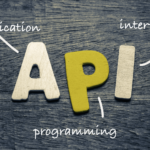Building an SEO strategy is a time-consuming process. Link building, technical audits, niche analysis, keyword research — these are just a few of the tasks.
Experts try to use special software and tools to automate processes involved in search engine optimization. However, most attempts weren’t sufficient. Others use SEO extensions and plugins. Extensions and plugins are convenient since they can be activated in a single click.
API, or application programming interface, is another method. If you’re not using API, you miss out on a lot of SEO benefits. Here are a few benefits of applying API to your SEO strategy:
Analyze Website Data
A “website data analysis” conveys data about your website’s popularity and search engine rankings. This technique works because millions of people search the web every day.
Analyzing your website data lets you know what’s working and what’s not. You can track where your website stands against competitors. This can then be used to develop a strategy for marketing in the future.
Learn for which keywords people search to land on your website. This makes it easier for your customers to find you, which can result in more traffic and business. Your website data analysis should include keywords used by the customer.
Wondering how to use API for SEO, specifically for analyzing website data? Some APIs allow you to conduct analysis in one click. You can do competition analysis, generate your site’s top ten keywords, obtain domain’s traffic data, and see your website’s visibility trend within a specified period.
The right API can also identify local directories, mobile-friendliness, usability, and crawl errors so you know what issues have to be solved.
Understand Keywords Better
Many people are under the impression that using keyword-rich content for their website will always result in better rankings than those who use generic, less useful content. But, that couldn’t be further from the truth. Keyword research will always be a huge factor when you try to rank high on Google, Yahoo, and other search engines.
How do you find out what keywords are effective? Keyword research is the process of finding out what your target audience looks for. Learn how to use the keywords to achieve higher visibility.
Keep in mind is different markets use different types of keywords. For example, your niche market may be more interested in a certain type of keyword, such as ‘travel’ or ‘online shopping.’ It thus makes sense to use these terms in your site content more often.
For instance, if you sell travel and vacation packages, include these terms a lot more often. This will benefit you more than using generic terms that many websites use. It also helps to know what kind of visitors are most likely to come to your site. Knowing what kinds of keywords to use makes it a lot easier to write great content for your site.
With the help of API, keyword research is easier. With specific API’s keyword research features, get related keywords and measure your content’s quality based on its topic and the words you use. In most cases, enter the main keyword and the API will show the main keyword’s optimization score. It also shows the different words to remove or add to your articles.
Monitoring Backlinks
Monitoring backlinks can give your site a lot of advantage. Many search engines that use backlinks to rank websites. Backlinks are one of the most important SEO factors. Ensure only reliable sites contain links to yours. If you have poor backlinks or links from suspicious websites, your ranking will be negatively affected.
There are other ways to benefit from link building. Link to your website from other authority websites. You then establish yourself as a credible platform people can rely on for any information they need. The more reputable and authoritative your site is, the better chances that the search engine will show it in the first page of results pages.
Some APIs let you discover the following:
- Backlink data accumulated over the past five years
- Available backlink data obtained in the past 120 days
- Anchor texts
- Whether or not the link was still live the last time the site was crawled
- Whether the link has been marked as ‘nofollow’
- When the link was found
Understanding Website Metrics Better
Besides converting traffic to sales, there are optimization measures designed to increase your conversion rate. Of the two, page optimization has the highest level of importance. It refers to how effectively your website can help potential customers find you, and what page they’ll see when they do.
Of course, this also applies to how your website displays when users arrive at your site. These are all covered in your site’s performance metrics.
Optimizing your website’s performance is just as important as other aspects of SEO, such as link building, keywords, and website content. For example, if your website contains a high number of broken links and keyword-rich content that’s difficult to navigate, then you may have problems with visitors leaving your website to find your competitors.
With the help of API, you can request for both built-in metrics and a set of metrics expressed in mathematical operations. In just one click, you can also obtain data within two date ranges. Requesting lifetime value and cohort reports is also possible. Finally, you can automate complex reporting tasks to save time.
Conclusion
It can be more difficult to manage your time when you have a lot of tasks to perform to optimize your site. Don’t limit yourself with tools for SEO that aren’t optimal. Implement new methods like API into your SEO processes. That way, you can save time on manual work and become more productive. API can do wonders for your SEO campaign.





